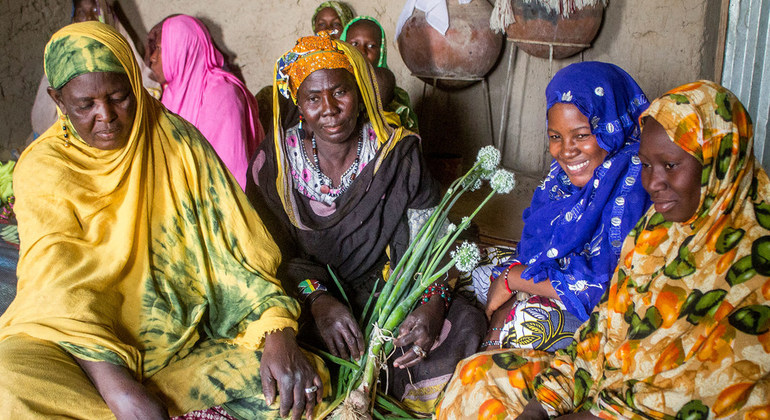He stressed that the conclusions emerging from the Forum “are rooted in the pressing need to address the Inclusion Imperative and provide us with important insights as we look ahead to September”.
‘We can do better’
In her opening remarks, Inga Rhonda King, President of the Economic and Social Council (ECOSOC) summarized the first five days of the Forum, saying that countries had been mobilized around the 17 SDGs, voluntary national reviews had been shared by 142 countries, SDG progress had been tracked and children had spoken about the future they want.
While acknowledging the hard work of many countries, she contended that “we need to do more, to do it faster and to be more transformative”.
She urged the participants to “understand how we can do better, advise each other and forge new partnerships”, noting that “our conclusions will reverberate in the September SDG Summit.”
Ms. King assured the group that their ideas would be included “on how to make this Forum even more vibrant and action-oriented” during the upcoming General Assembly.
“I hope that our discussions will encourage our Heads of State and Government to come back in September ready to announce ambitious acceleration actions”, she said in closing.
‘Make it count’
“We have eleven years to deliver” on the 2030 Agenda, General Assembly President María Fernanda Espinosa, opening the Ministerial Segment.
“Let’s use the coming days to lay the groundwork not only for the SDG Summit, but indeed for the whole of high-level week”, she said, referring to the Assembly’s annual general debate, and adding that we have “five days to make it count”.
Ms. Espinosa underscored the import of addressing urgent challenges “as they pave the way for longer-term risks and opportunities”, including the need to be “fully inclusive” and to empower girls and women.
She detailed that she has been working with Member States to ensure their contributions to the 2030 Agenda, including the preparations for this HLPF and September’s SDG Summit.
“That has been the overarching vision and the driving force” behind the “priorities set out for this session”, she explained.
Ms. Espinosa also encouraged participants to use the September high-level week, at which time five summit-level meetings will be convened, “to be more ambitious and to announce accelerated measures and specific steps that respond to the urgency of the challenges we face”.
Those meetings “represent a key opportunity to demonstrate that multilateralism works – that it can deliver tangible benefits to people’s lives”, Ms. Espinosa spelled out.
The goals under review at the Forum focus on education, economic growth, inequality, climate change and peaceful, just and inclusive societies.
Diplomatic achievements of the century
Together with the Paris Agreement on climate change, the 2030 Agenda is one of the “most important diplomatic achievements of this century”, Ireland’s former president Mary Robinson told the Forum.
Pointing out that both concluded in 2015, she called them “tangible proof of the benefits of multilateralism and a rebuke to the narrow agendas of nationalism, isolationism and self-interest”.
If implemented in full, the Chair of the Elders – a group of independent global leaders founded by Nelson Mandela who work for human rights and a sustainable future – maintained they are “a pathway to a world where poverty, inequality and conflict will not blight the life chances for millions of people currently denied the opportunity to enjoy their fundamental rights and freedoms”.
Noting the Intergovernmental Panel on Climate Change (IPCC) report, she reminded the meeting that staying at or below 1.5°C warming above pre-industrial standards was “the only safe level for the whole world” because warming to 2°C would “cause considerable risk to the planet”.
“We can no longer afford to regard the 2030 Agenda and the Paris Climate Agreement as voluntary”, flagged Ms. Robinson, citing a UN report in May detailing the loss of biodiversity and potential extinction of one million species.
She stressed that the full implementation of both reports has become imperative “to secure a liveable world for our children and grandchildren”.
“We have a global crisis and we must treat it as such”, she stated, saying that the HLPF “provides an opportunity to take an honest look at what all States have achieved and what more we need to do on the SDGs, so that when world leaders convene in New York in September for the SDG Summit, they can come with more than just words”.
A former UN High Commissioner of Human Rights, Ms. Robinson underscored the importance of working together, saying: “We will not overcome the key existential challenges facing our world today, from nuclear weapons to climate change, if we spurn cooperation”.
“This High-Level Political Forum is a moment to be bold and to demand real ambition from leaders”, she asserted, adding that “playing safe or doing business as usual will not deliver the results the world needs”.



